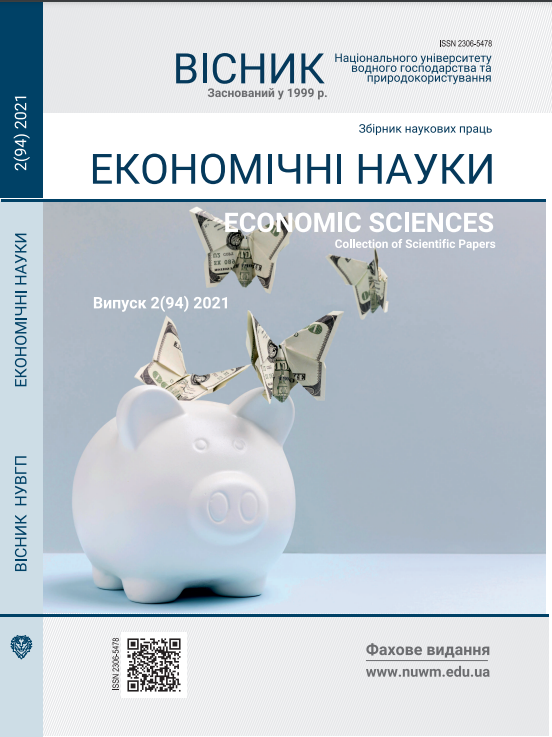ANALYSIS AND FORECASTING IN THE SYSTEM OF INTERNATIONAL ECONOMIC RELATIONS
DOI:
https://doi.org/10.31713/ve220213Keywords:
analysis, forecasting, international relations, planning, foreign policy forecasting.Abstract
International economic relations of the world cannot develop effectively without their analysis and development of qualitative forecasts. It is noted that one of the main functions of management is the function of forecasting, which comes directly from the nature of the concept of management, as it must solve both current problems and future problems. In general, the forecast in science means a probable, scientifically sound judgment about the future. Political and socio-economic forecasting in the international arena are extremely closely linked, as the social system is interconnected with the political system, moreover, its development and structure depend on the processes of transformation or modernization of the political system. Thus, the development of effective and adequate international social forecasts is impossible without similar work in the international political sphere and vice versa. The problem of determining forecasting methods in the system of international economic relations remains debatable. Thus, some researchers include expert methods, methods of extrapolation andmodeling. Another group of scientists divides forecasting methods into general scientific and partial scientific. In our opinion, the most optimal is the selection of a general scientific group of forecasting methods, whichconsists of analysis, synthesis, extrapolation, interpolation, induction, deduction, analogy, hypothesis, experimentation, etc. Innovative methods that focus on collective thinking include brainstorming, expert surveys, testing, and the Delphi method. A key factor in effective socio-economic forecasting in the international arena is the availability of highly professional specialists and institutions capable of developing and presenting forecasts. Methods of content analysis and event analysis are analyzed. When using the method of content analysis, attention is paid to the most commonly used words that define the main idea and concept of the document, which allows us to conclude about its functional orientation. The method of event analysis is based on the observation of the dynamics of events in the international arena in order to determine the main trends in the political situation in individual countries. It is substantiated that the use of these methods of analysis and forecasting will allow to respond more adequately to the latest challenges, will contribute to the development of alternative options for reforming strategic areas of the political and socio-economic system.References
Козик В. В. Міжнародні економічні відносини : навч. посіб. К. : Знання, 2006. 406 с.
Політична аналітика в системі публічного управління : навч. посіб. / авт. кол. С. О. Телешун, С. В. Сьомін, О. Р. Титаренко та ін. ; за заг. ред. С. О. Телешуна. К. : НАДУ, 2008. 284 с.
Філіпенко A. C. Міжнародні економічні відносини : підручник. К. : Либідь, 2008. 408 c.
Циганкова Т. М. Глобальна торгова система: розвиток інститутів, правил, інструментів СОТ : монографія. К. : КНЕУ, 2003. 660 с.

